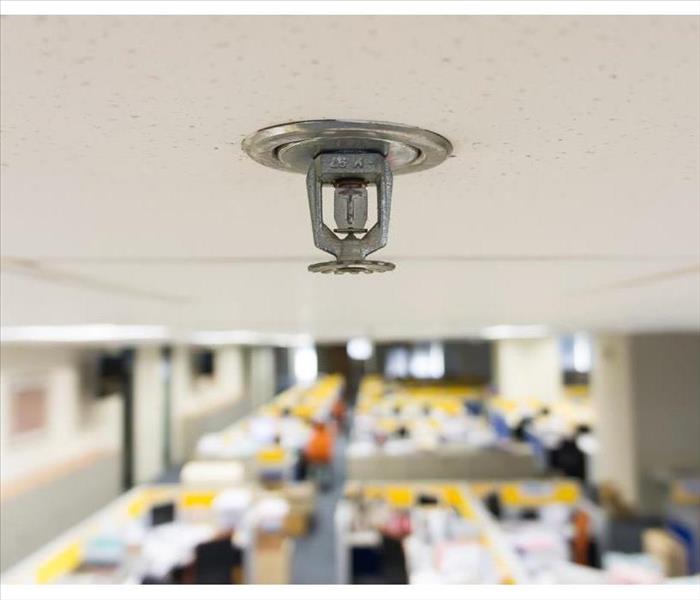How Fire Sprinklers Work During a Fire
3/23/2022 (Permalink)
How Do Fire Sprinklers Work?
In the event of a fire, a reliable fire sprinkler system can save lives. Equipping your commercial building in South Bend, PA, with sprinklers also significantly reduces property loss and damage. To protect all of your employees and keep your building safe, it’s crucial to have a fire suppression system installed and functioning properly. Here are the different ways a sprinkler works to extinguish a fire.
Detects Heat
While the presence of smoke sets off a smoke detector, sprinkler systems are mainly triggered by heat. As soon as a spark appears, the following takes place:
- Air surrounding fire heats up
- Heated air rises towards ceiling
- Sprinkler head senses heat and activates
Detecting heat is an essential feature of a fire sprinkler because it enables it to drown out the fire as soon as possible. Making sure your system is in good shape is necessary in order to be prepared for a real fire.
Douses the Flames
Once the sprinkler has sensed heat around it, it releases pressurized water. The water comes from a pipe system that connects to a water source outside the building. After heat causes the sprinkler to activate, a valve in the sprinkler head opens and water flows out. Because the water is pressurized, it is able to douse the fire completely and ensure that it is safely extinguished.
Keeps Water Confined to Area of Fire
When the heat rises towards the ceiling, only the sprinkler head closest to the heat source activates while the other sprinklers stay sealed. This can prevent excessive water damage from harming your building. However, the water that flows from the one or two active sprinklers can still cause harm to your building, which is why it is vital to contact a professional and schedule a fire sprinkler cleanup immediately.
If your building in South Bend, PA, has water damage as a result of fire sprinkler activation, don’t wait to call for help. A water damage repair specialist can help restore your business in no time.





 24/7 Emergency Service
24/7 Emergency Service
